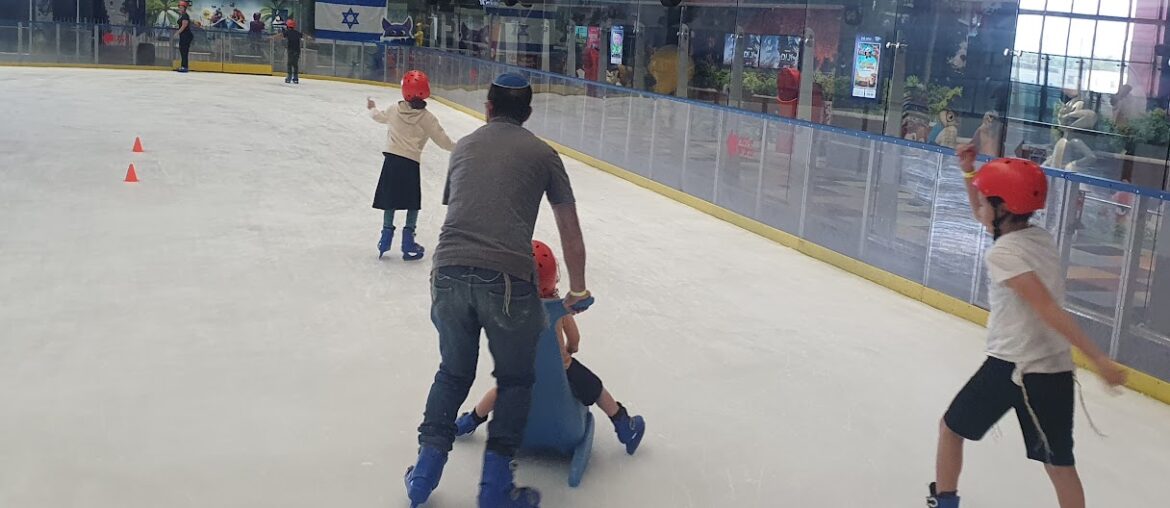A friend from college was coming to Israel for a few months. Jeremy hadn’t been since Birthright, 15 years earlier, but October 7th changed his priorities. He didn’t know many people here, so I volunteered to help him navigate the quirks of Israeli life.
One day, he sent me a voice note.
’Is there a trick to getting the bus drivers to stop? I was standing at the bus stop, waving frantically at the driver, and even made eye contact—but he just kept driving.’
I laughed. ’I don’t know, dude. Israeli bus drivers have a mind of their own.’
A few weeks later, he came to visit me in Be’er Sheva. Wanting him to get the full Israeli experience, I introduced him to a good friend of mine. Fatima is a young Bedouin woman from an unrecognized village and a student at Ben-Gurion University. She’s one of the most level-headed people I know.
Our conversation jumped from lighthearted topics—film studies, the best coffee shops—to more serious ones, like the war. Noa Argamani had just been rescued, and Fatima shared her relief.
’I wept when I heard,’ she said. ’She’s a student here too, you know. I’ve been praying for her safety. I wonder what it will be like if she sees me on campus. Would my hijab trigger her? Would she fear me? She might, and I’d understand. But that’s painful to think about.’
She mentioned how discrimination against Arabs has intensified. Jewish students avoid sitting next to her. She is always searched thoroughly when entering a mall. And that morning, the bus driver hadn’t stopped for her, even though she had been clearly flagging him down.
At the mention of the bus, I caught Jeremy’s eye.
Maybe racism kept the driver from stopping for Fatima. Or maybe the bus was full. Maybe he was finishing his shift. Or maybe, as I had told Jeremy earlier, Israeli bus drivers are just unpredictable.
The war has seeped into every interaction we have. It has become the lens through which we view the world. But it doesn’t have to be. Did the group of Arab teenagers who crashed into my son while ice skating do it on purpose, triggered by his tzitzit? Or were they just clumsy kids who had never been on skates before? Did the mall security guard take extra time checking the young man because he was dark skinned? Or because he was wearing a heavy jacket in July?
I remind myself of this when I catch my own assumptions creeping in—when I feel tension rising in a conversation, or when I hesitate before striking up a chat with a stranger. I actively push back against that instinct, choosing instead to engage, to listen, to ask questions. To judge favorably, and give the benefit of the doubt.
So much is out of our control lately that we forget how much power we still have. We can’t decide when the war will end or influence our leaders’ decisions. But there is plenty that Jews and Arabs within Israel can do for each other.
We can choose to smile at strangers. To have patience for one another as we struggle through our days. As a Jewish woman, I think about the generations before me who carried both fear and hope, who endured catastrophes and still extended kindness. This small resistance—choosing to see people as individuals, refusing to view each conversation, or interaction, through the lens of war—feels like a continuation of that legacy.
Small gestures won’t change everything. But they can change something, and that’s what I’m holding onto.


2 Comments
Dearest Menucha;
What a beautiful story.
Thank you for sharing.
Sharon Easton; storyteller, writer
Beach Moose & Amber: Finding My Jewish History
Member of: Writer’s Union of Canada, Canadian Writers Association, the Federation of BC Writers, and Around Town Tellers, Nanaimo
Website: https://www.sharoneaston.com
Facebook: http://www.facebook.com/sharoneastonauthor
Such an important message